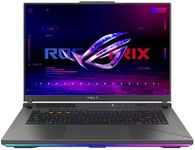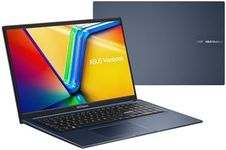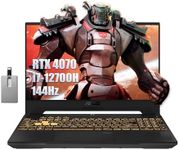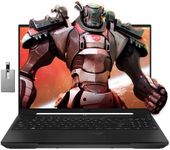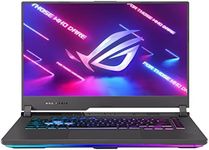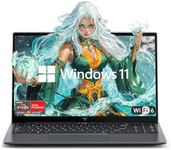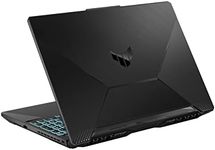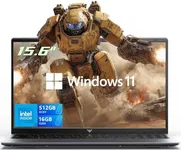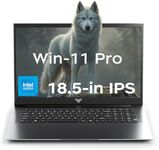Buying Guide for the Best Asus Laptops
Choosing the right laptop can feel overwhelming, but breaking down your needs and understanding the key features can make the process much easier. Start by thinking about how you plan to use your laptop—whether it's for work, study, gaming, or general use. Each use case has different requirements, and knowing what matters most to you will help you focus on the specs that really count. It's important to balance performance, portability, and battery life to find a laptop that fits your lifestyle.Processor (CPU)The processor is the brain of your laptop and determines how quickly it can handle tasks. A faster processor means smoother multitasking and better performance with demanding applications. Entry-level CPUs are fine for web browsing and basic tasks, mid-range CPUs are good for office work and light content creation, while high-end CPUs are best for gaming, video editing, and heavy multitasking. Think about what you do most often—if you mainly use your laptop for emails and streaming, you don't need the fastest processor, but if you run complex programs, a more powerful CPU is worth considering.
Memory (RAM)RAM is your laptop's short-term memory and affects how many programs you can run at once without slowing down. Less RAM (like 4GB) is suitable for basic tasks, 8GB is a comfortable middle ground for most users, and 16GB or more is ideal for heavy multitasking, gaming, or creative work. If you often have many tabs or programs open, or use memory-hungry applications, opt for more RAM to keep things running smoothly.
Storage (HDD/SSD)Storage determines how much data, like files and programs, you can keep on your laptop. Traditional hard drives (HDD) offer more space for less money but are slower, while solid-state drives (SSD) are much faster and make your laptop feel more responsive. For most users, an SSD is recommended for speed, with 256GB being enough for everyday use, 512GB for those with lots of files, and 1TB or more for heavy storage needs. Consider what you need to store and how important speed is to you.
Display Size and QualityThe screen size affects both portability and how comfortable it is to use your laptop. Smaller screens (13-14 inches) are lighter and easier to carry, while larger screens (15-17 inches) are better for watching videos or working with multiple windows. Display quality, including resolution (like Full HD or 4K), impacts how sharp and clear everything looks. If you travel a lot, a smaller, lighter laptop is easier to manage, but if you work with graphics or watch a lot of movies, a bigger, higher-resolution screen is worth it.
Battery LifeBattery life tells you how long your laptop can run without being plugged in. Laptops with longer battery life are great for students, travelers, or anyone who works away from a power outlet. Light-use laptops can last 8-12 hours, while more powerful models may last less. Think about your daily routine—if you're often on the go, prioritize longer battery life, but if you mostly use your laptop at a desk, this may be less important.
Weight and PortabilityThe weight of a laptop affects how easy it is to carry around. Ultraportable laptops are usually under 3 pounds and are great for frequent travelers or students. Heavier laptops may offer more power or bigger screens but can be cumbersome to move. Consider how often you'll carry your laptop—if it's daily, lighter is better, but if it mostly stays in one place, weight is less of a concern.
Graphics (GPU)The graphics processor handles visual tasks like gaming, video editing, and running multiple displays. Integrated graphics are fine for everyday use, while dedicated graphics cards are better for gaming or creative work. If you play games or use design software, look for a laptop with a dedicated GPU; otherwise, integrated graphics will be sufficient.
Ports and ConnectivityPorts are the physical connections for things like USB drives, monitors, and headphones. More ports give you more flexibility, but some thin laptops have fewer options. Think about what devices you need to connect—if you use lots of accessories, make sure the laptop has the right ports, or be prepared to use adapters.
